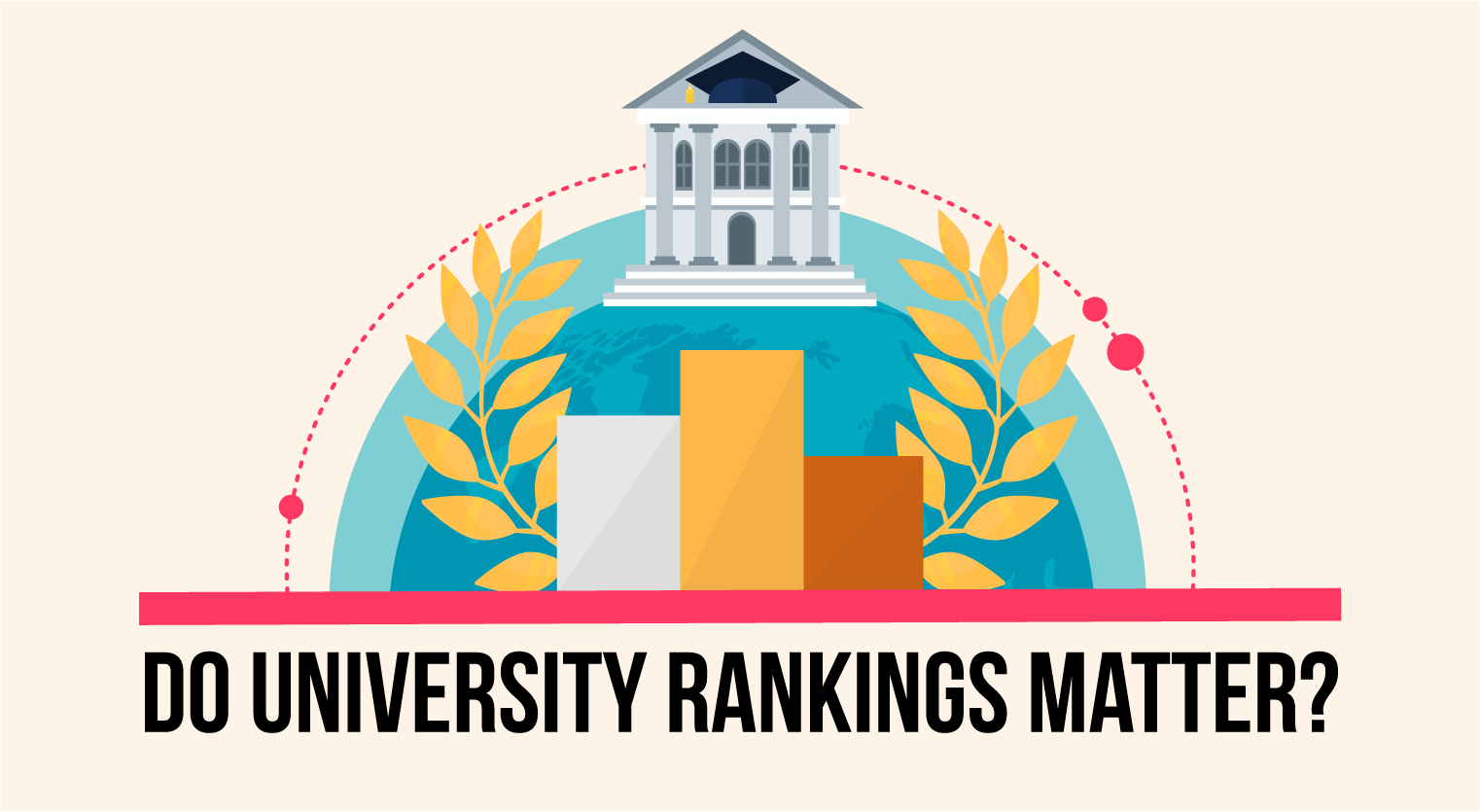Visiting an Education Fair Soon? Here Are 5 Nifty Tips to Keep in Mind
Are you planning to visit an education fair soon? Check out our 5 nifty tips that will help make your trip productive!
Updated 30 Nov 2017

Whether you’re just coming back from a gap year or have SPM done and dusted, it’s that time of year to decide on your tertiary education pathway.
With family and friends having plenty of suggestions over what and where you should study coupled with the plethora of information online, things can get pretty overwhelming.
So what better way to get some firsthand information and explore your opportunities than to attend an education fair, where hundreds of universities are gathered under one roof?
To help you make the best out of your time during these fairs, here are some pointers on what you can do when you go booth hopping!
#1. Do your homework

Save yourself some time by doing some research before visiting an education fair, such as narrowing down your options for courses and potential universities you are interested in.
However, if you’re still indecisive, you can always approach a university representative or a counsellor who can recommend the right programme based on your interests and exam results.
DID YOU KNOW
Can’t attend an education fair? EduAdvisor offers free counselling services over the phone or face-to-face for students who are looking to enrol in college or university. Get in touch with us today!
#2. Attend career talks and demonstrations

The best part about attending an education fair is the plethora of talks, fun personality tests and demonstrations (especially for culinary arts courses!) that are usually held during the event.
So apart from stuffing yourself silly with free cakes and pastries from the culinary booths, you should also take the time to attend career talks by industry-experts on their views and experiences in working in particular fields (e.g. Medicine, Hospitality and Tourism, etc.) which can help you decide if a particular career or course is right for you.
Look out for demonstrations, such as how a paramedic team responds to an emergency (e.g. how to perform CPR and place an injured person on a stretcher, etc), as these will give you an idea about what it’s like to work in a particular field and help you decide if you’re a good fit for the role.
Don’t be shy to approach the speakers and demonstrators for more information as they’ll prove to be invaluable with your decision-making.
#3. Prepare a list of questions

Make the best out of your trip to an education fair by preparing a list of questions to ask a university representative. After all, you wouldn’t want to spend the next 3 to 4 years of your life in a programme or university you despise!
Here are some questions you can ask to gauge your future programme and university:
Programme structure
- What are the programmes offered and the options for majors, minors and electives?
- How will I be assessed? How are the marks split between coursework and exams?
- Are internships or work experience part of the course?
- Can I switch courses/majors midway through my studies?
- Who awards the qualifications if it’s a dual award degree?
- What are the options for me to continue my studies abroad (e.g. transfer programme, student exchange, etc.)?
- Can you tell me more about the faculty’s lecturers? Are they experienced in the industry or are there any that are outstanding in any way?
- What is the student-lecturer ratio or average class size?
- Are computers and the relevant software provided (e.g. Final Cut Pro, Adobe Creative Cloud, etc. for design or multimedia students)?
PRO TIP
Confused about the differences between dual award, double major and double degrees? Check out our comprehensive breakdown here.
Academic requirements
- What are the academic requirements for me to enrol (e.g. how many credits must I get for SPM, STPM, etc.)?
- Are there any language requirements (e.g. TOEFL, MUET, etc.)?
University facilities
- What are some of the university facilities available (e.g. healthcare, fitness centre, swimming pool, gym, computer labs, etc.)?
- Does the university provide counselling services for students in distress?
- How big is the library and what resources are available to students?
- Is there a food court or cafeteria on campus? How about a convenience store?
- Is the university accessible via public transport? Are shuttle buses provided in key areas?
- Is wifi available throughout campus?
- Can I drive to college? Are parking spaces available? How much is the parking per day?
Fees and financial aid
- How much does the total programme cost, including tuition fees, resource fees, etc.?
- What scholarships are available and what are the criteria?
- Do I have to maintain certain grades each semester to keep the scholarship? What happens if I don’t?
- What are the other financial aids available, besides PTPTN loans?
- Can I pay my tuition fees in instalments? If no, are there other payment options?
- Are there additional costs if I decide to do a student exchange programme? If yes, how much does it cost?
- Can you give me a breakdown of the tuition fee payment by semester?
- How many students have received financial aid from the university, and what is the approval process like?
PRO TIP
If you think pursuing a pre-university and a degree course is out of your budget, consider enrolling in a diploma course instead, which is typically 2 to 3 years long. Diploma courses allow you save time and money and enter the workforce ahead of your friends who are enrolled in degree courses.
Application process
- When is the date of enrolment and deadline to enrol?
- Can I defer my offer if I decide to join a later intake?
- How many intakes are there in a year and will certain intakes affect my graduation date?
- What is the application process like? How long does the process take?
Accommodation
- Is there on-campus accommodation? If yes, how much does it cost, including the deposit?
- What are some of the facilities provided in the on-campus accommodation?
- Are there any restrictions while staying in the on-campus accommodation (e.g. no noise after 10pm, no smoking, no alcohol, etc.)?
- How many students are allocated per unit?
- What are my off-campus accommodation options? How far is it from campus and how much does it cost? What are some of the amenities located nearby?
Job prospects
- What are my job prospects upon completing this programme? What is the employment rate of graduates in this programme?
- Does the university offer career counselling services?
- Are career placement services available, especially for internships?
- Does the college have links or ties with certain employers?
Bear in mind that you don’t need to ask all the questions listed above — only those that are relevant to your pursuit of the perfect programme!
PRO TIP
Check out our handy-dandy printable checklist to ensure you never forget an important question during your visit to an education fair, open day or campus visit!
Apply for university with EduAdvisor
Secure scholarships and more when you apply to any of our 100+ partner universities.
Start now#4. Bring your important documents

Besides your walking encyclopaedia a.k.a. your parents, you should also bring photocopies of important documents such as official transcripts (e.g. SPM, STPM, A-Level, etc.) and your identification card (IC). If you haven’t received your official exam results, bring your trial or forecast results instead.
Your results (both official or trial) are used to gauge if you’re suited for the programme you are interested in. For example, if you are interested in an Engineering Degree but your Pure Science results for SPM do not reflect the basic entry requirements, you may have to consider other programmes.

#5. Take your time to digest the information and evaluate your options

Attending education fairs can get pretty overwhelming, what with hundreds of institutions and programmes to choose from. It also doesn’t help that choosing what you’ll be studying over the next 3-4 years can be highly stressful as it can affect your career and future path.
However, bear in mind that you don’t have to feel pressured to make an immediate decision, especially if some universities are offering discounts of a few hundred ringgit during the fair, compared to the thousands that you will be spending in the coming years.
So before you make any hasty decisions, it’s important to gather as much information as you can, take some time to digest them before weighing out your options. Consider important factors such as its affordability, your interests as well as the pros and cons of the programme and institution.
DID YOU KNOW
In addition to free one-on-one counseling, EduAdvisor also offers free application services to many education institutes in Malaysia. This includes helping you with your application form, expediting your applications to colleges or universities, and sorting out your offer letter and orientation schedules. Get in touch with us today!
And there you have it! We hope that you’ve found this information useful and informative.
When it comes to making your trip to an education fair fruitful, preparation is key. Armed with the right questions and actions, you’ll get all the information you need to help you make the best decision for your tertiary education. Good luck!






